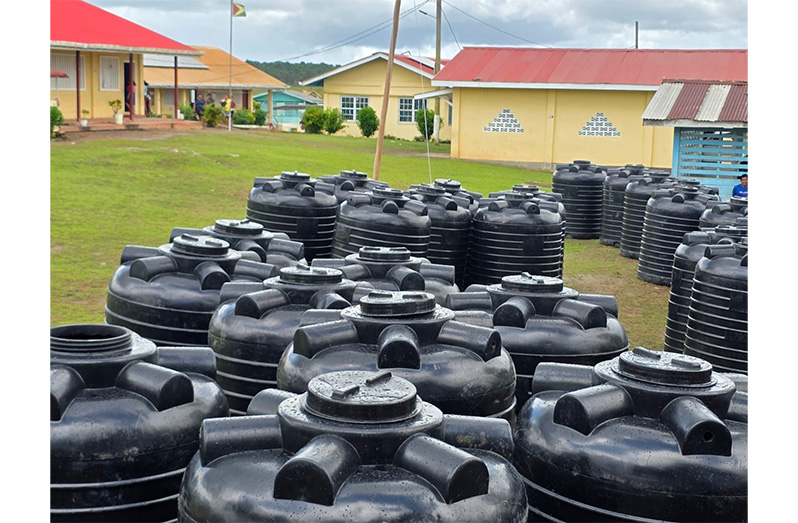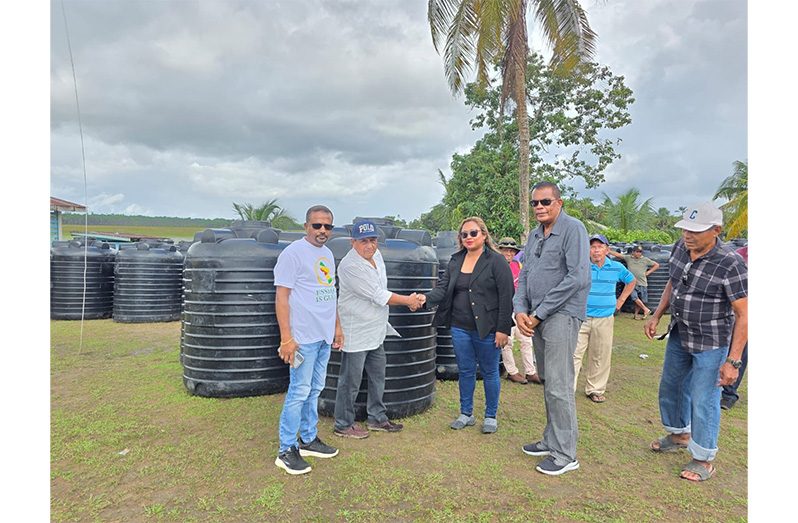THE livelihoods of 75 families in Akawini Village and surrounding satellite islands in Region Two are now better and improved following the distribution of black water tanks, compliments of the Government of Guyana through the Ministry of Agriculture.
The initiative, led by Director General of the Ministry of Agriculture, Mr Ricky Ramraj, who also holds political responsibility for Region Two, demonstrates the PPP/C government’s continued efforts to invest in critical infrastructure and uplift rural and hinterland communities.

The distribution team included Member of Parliament, Dr Tandika Simone Smith; Regional Vice-Chairman, Mr Humace Oodit and other regional officials. The beneficiaries of the water tanks included elderly residents, single parents and persons living with disabilities.
In his remarks, Ramraj said that during a recent meeting, residents requested the black tanks. He emphasised that the distribution of the receptacles are not water tanks, but represent a way to improve lives.
He said the government is committed to ensuring that no community is left behind, and is taking the necessary steps to build climate-resilient villages and empower every citizen.
Ramraj said the intervention is part of a broader effort by the PPP/C administration to improve water access, sanitation and overall living conditions in rural and Indigenous communities across Guyana.
He said that the distribution aligns with the government’s vision of building a more inclusive and sustainable nation, where development reaches every corner of the country.
“I am very thankful for the black tank, I will use it to store water for my household,” Miguel Williams said.
Another resident expressed similar sentiments and said that many times the creek water would be salty and sometimes no fresh water is available for consumption.
Other residents said that they are thankful for the timely intervention, which they described as tangible support. According to them, the initiative represented a meaningful example of the government’s promise to deliver real results for the people.
Many expressed heartfelt gratitude, noting that this intervention would significantly ease their daily burdens, particularly when it comes to storing clean water for domestic use during dry periods, or when water sources are limited.



.jpg)








